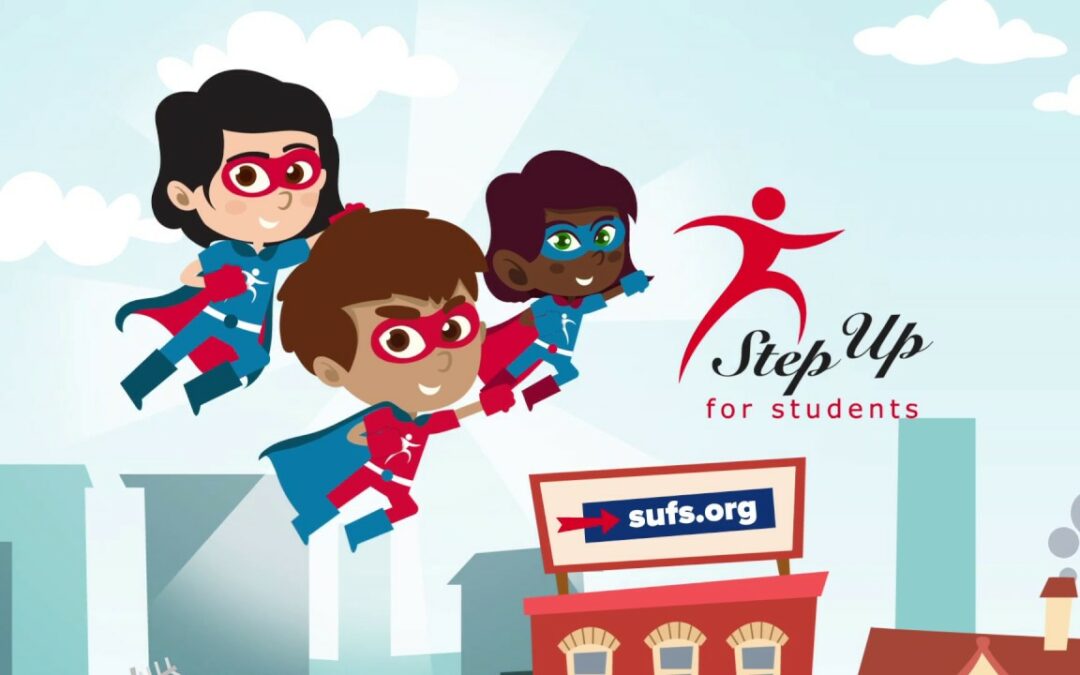
There is a May 31st deadline for both the Florida Empowerment Scholarship for Unique Abilities (FES – UA) and the Personalized Education Program Several key points:
- The initial deadline to enroll for these programs for the 2024 – 25 school year is May 31st. While that may change, we strongly recommend parents enroll your child ASAP.
- A number of parents signed up for the Personalized Education Program last year and later realized their child could qualify for the Florida Empowerment Scholarship for Unique Abilities — that may be worth $2000 more per year for a student with mild disabilities and much more for students with more complex disabilities. REMEMBER: they can only use one- even if 2 are awarded. Note, these scholarships are only for students in private school or being homeschooled. Public and charter school students are not eligible.
- We encourage parents to get the required documentation for the Florida Empowerment Scholarship for Unique Abilities, also known as FES – UA ASAP, preferably before May 31st. Here is a link to more information on the FES- UA.
- If your child is going back to public school in the fall, they will lose whatever is in their account that has not been spent on the day they start school. If your child needs help before reentering public school, consider a summer program.
3D Learner Is a Provider for both the Florida Empowerment Scholarship for Unique Abilities (FES – UA) and the Personalized Education Program
Our focus is on the visual learner, kinesthetic learner or neurodivergent learner, who learns best when he or she sees and experiences information. We also identify and address dyslexia, ADHD, visual processing issues and executive function challenges.
We are Dyslexia certified trained for the UFLI ® Program — the University of Florida’s Reading Intervention that incorporates a Core Assessment, and an engaging and effective dyslexia treatment. This is an Orton-Gillingham based program.
If you have any questions or would like to discuss how we can help your child and you, call 3D Learner at 561-361-7395 or click here to schedule a Conversation on How The Florida Empowerment Scholarship for Unique Abilities or the Personalized Education program can help your child.

7 ways 3D Learner is different than any other provider:
1. Our hands-on program is designed to help the right brain learner, kinesthetic learner or neurodivergent learner who learns best when he or she sees and experiences information.
2. We address both reading fluency and reading comprehension. We have had students make 2, 3 and even 4-year gains in their reading comprehension in 4 to 6 months. While we are a hands-on program, we also address phonemic awareness and reading fluency with the University of Florida’s UFLI Program ®.
3. We identify and address executive function, visual processing and related issues.
4. We strive to ignite a love for learning, while boosting self-esteem
5. We help parents to be even more effective coaches for their child.
6. We tailor our program to meet the individual child’s needs. We can also address math and writing issues.
7. Our assessment, that can be done live or online, will show a parent:
-
- How your child learns best
- Their learning strengths and challenges
- Whether there is an executive function or visual processing issue
- The child’s present level of performance for both reading fluency and reading comprehension

If you have any questions or would like to discuss how we can help your child and you, call 3D Learner at 561-361-7495 or click here to schedule a Conversation on How The Florida Empowerment Scholarship for Unique Abilities can help your child
Homeschool successes with 3D Learner. We have helped:
If you have any questions or would like to discuss how we can help your child and you, call 3D Learner at 561-361-7495 or click here to schedule a Conversation on How The Florida Empowerment Scholarship for Unique Abilities can help your child.
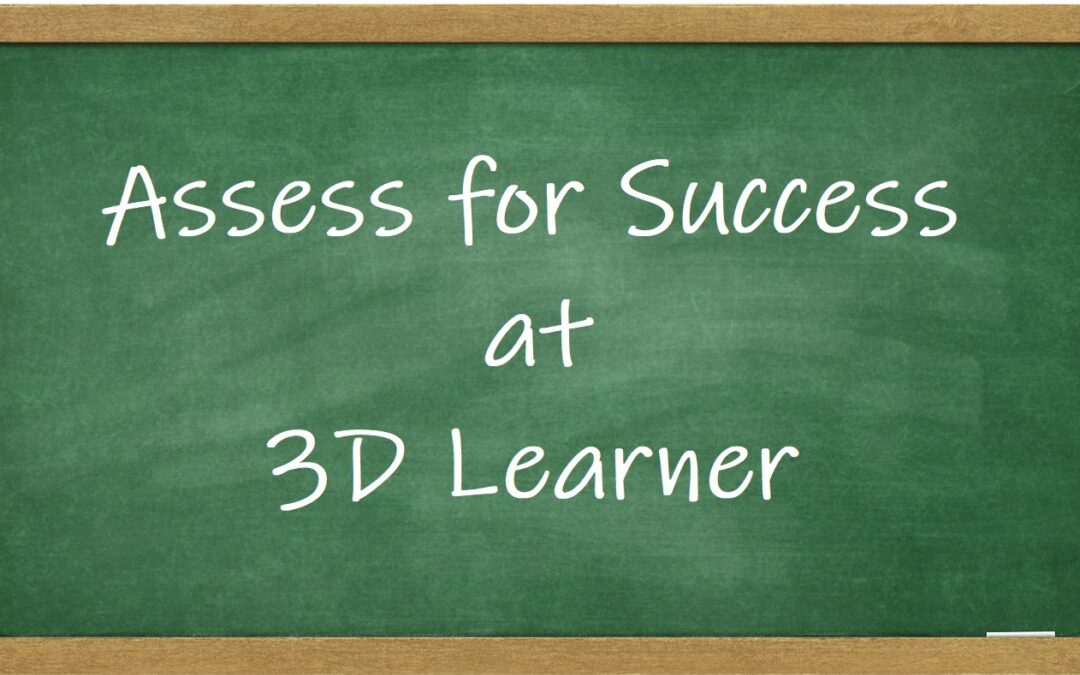
Students today are often struggling with reading fluency, reading comprehension and/or math.
Three of the greatest educational risks are:
- Parents often do not know what their child’s present level of reading fluency, reading comprehension and math skills are at
- Students who learn differently (i.e. neurodivergent, right brain and kinesthetic learners) often fall behind — as neither school based or home school curriculum may be consistent with how they learn best
- Without testing, parents may not be aware of how their child learns best, where their child is strong and where their child struggles
The opportunities for parents include:
- There are real benefits with an assessment that shows you::
- How your child learns best
- What are your child’s strengths and challenges
- What is your child’s present level of performance for reading fluency, reading comprehension and math
- If needed, the assessment can help educators to tailor a program to:
- Capitalize on how your child learns best
- Improve their reading speed, reading comprehension and math skills
- Help you to be the coach your child needs
- How you can help your child be all they can be
How 3D Learner Assesses for Success
Mary called and was not sure about her child’s reading fluency, reading comprehension and math skills were at. She had tried two years of dyslexia treatments. Mary was not interested in labeling, but she was very interested in knowing:
- How her daughter learned best
- What her daughter’s strengths and challenges were
- What was her child’s present level of reading comprehension, reading fluency and math
- If there were significant gaps, could we help her daughter get to grade level or above
- Whether what we offered could improve her child’s baseball and soccer skills. Mary knew that her daughter would be even more interested in help, if it could make her better at baseball or soccer.
Mary shared a few of her frustrations, that included, her daughter:
- Understood stories when Mary read them to her, but struggled with silent reading comprehension
- Read more fluently, but often had difficulty remembering words she had seen and not mastered
- Was good at math, but was now struggling with math word problems.
We then asked Mary what her daughter was good at, Mary shared that her daughter:
- Had an excellent memory for things she had seen and experienced
- Was a good person — who loved playing with younger kids and cared about seniors
- Was good at baseball and soccer but was inconsistent. Three area of concern were:
- Her daughter would sometimes lose focus during a game
- In baseball, she would sometimes hit the ball well, but too often she would pull the ball foul
- In soccer, her shots often went to the right side of the goalie
- Her daughter was frustrated that she was not doing as well as she wanted to
We shared this infographic with Mary and explained how we assess for how the student learns best and whether they have a visual processing, executive function, dyslexia and/or anxiety challenge.
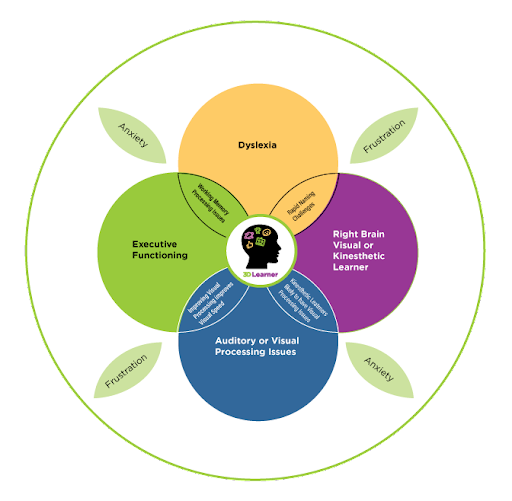
- Many smart struggling kids learn differently. They are often a neurodivergent, right brain or kinesthetic learner, who learn best when they see and experience information. This is important to know, because if they learn differently, it alters the way you teach them, the curriculum you may choose, how you parents them and how one coaches them in sports.
- 74% of the students we see have a visual processing issue – they may see the whole field or the whole room, but their eyes have difficulty converging. This often results in their skipping words and/or liens when reading and having difficulty catching a ball.
- The executive function challenges we often see may include:
- Difficulty sustaining attention and either being hyperactive or impulsive. When we assess a student with the Interactive Metronome ®, we often see that a student’s body moves faster than their brain. In sports, this results in hitting the ball too early. In baseball that would explain pulling it foul or for a right footed kicker, hitting the soccer ball to the right of the goalie. In life, the attention issues may results in a child losing focus when doing work or during a game
- The working memory assessment often shows a student has an excellent visual memory, but has difficulty remembering what they have heard or read
- The Dyslexia Assessment shows where a child is strong and where they struggle. We can assess for Dyslexia and we can also tailor a program that focuses on the key issues
- The reading comprehension assessment shows two different challenges:
- A number of students are below grade level
- Some students are at grade level, but the assessment shows they should and could be well above grade level
- Our math assessment shows us where a student is at and where they struggle
- The anxiety assessment often shows the student gets very anxious in certain situations
Mary asked about the tools we use and whether it is different from what schools and psychologists assess for. We shared that:
- The key assessment tool we use is the Structure of Intellect Assessment ® that shows how a student learns best, where they are strong and where they struggle.
Comments from a principal, a special educator and a psychologist
- A principal asked a special educator why their public school stopped using this assessment. The special educator said “We are required to find a disability in order to provide services. This assessment does not do that. 3D Learner has the luxury of focusing on tailoring a program to help a student succeed
- A psychologist commented, “I wish we could shift our focus from labeling to how to help a child succeed”
- The Visagraph ® we use to show if there is an eye tracking issue can show both the initial challenge and can be used post training to show the results Here is a video that shows a student’s eye tracking before and after training. He commented,. “I now enjoy reading and do much more of it”
- We use the Mindprint Assessment ® developed by by the University of Pennsylvania to assess executive function skills
- We use a Woodcock Johnson ® Reading Comprehensive Assessment
- We use the Core Dyslexia Assessment ® developed by the University of Florida to assess phonics, phonemic awareness and reading fluency. It also helps us to see if the child has dyslexia,
- We use the Perceptions Math Assessment ®
- We use Heartmath ® to assess for anxiety
When we assessed Mary’s daughter we did find that:
- She was a neurodivergent, right brain or kinesthetic learner who learns best when she sees and experiences information
- Her daughter had a number of skills that were well above grade level, but struggled with a few key skills
- She did have a significant visual processing issue
- Attention was an issue and her daughter’s body was racing faster than her mind This explained some of the self-control and sports related issues
- Her visual memory was excellent, but her auditory memory was weak
- She no longer has significant issues related to reading fluency, but there were some areas where she could benefit from additional training
- Her reading comprehension was a year below grade level
- Arithmetic was not an issue, but that word problems were
- Anxiety was an issue
Mary has the flexibility to prioritize training and her daughter was able to make significant gains over the next six months in reading comprehension, math, attention, visual processing, and self-esteem. Her baseball and soccer skills improved too. Mary commented that knowing my daughter was a neurodivergent learner with visual processing and executive function challenges changed everything, and addressing the whole child changed her life. She also added that by helping to improve my daughter’s baseball and soccer skills, you engaged her in the process.
If you would like to discuss your child’s situation and learn more about how we Assess for Success, you can call us at 561-361-7495 or click here to schedule an Assess for Success Conversation. Note, these assessments can be done in person or via zoom.
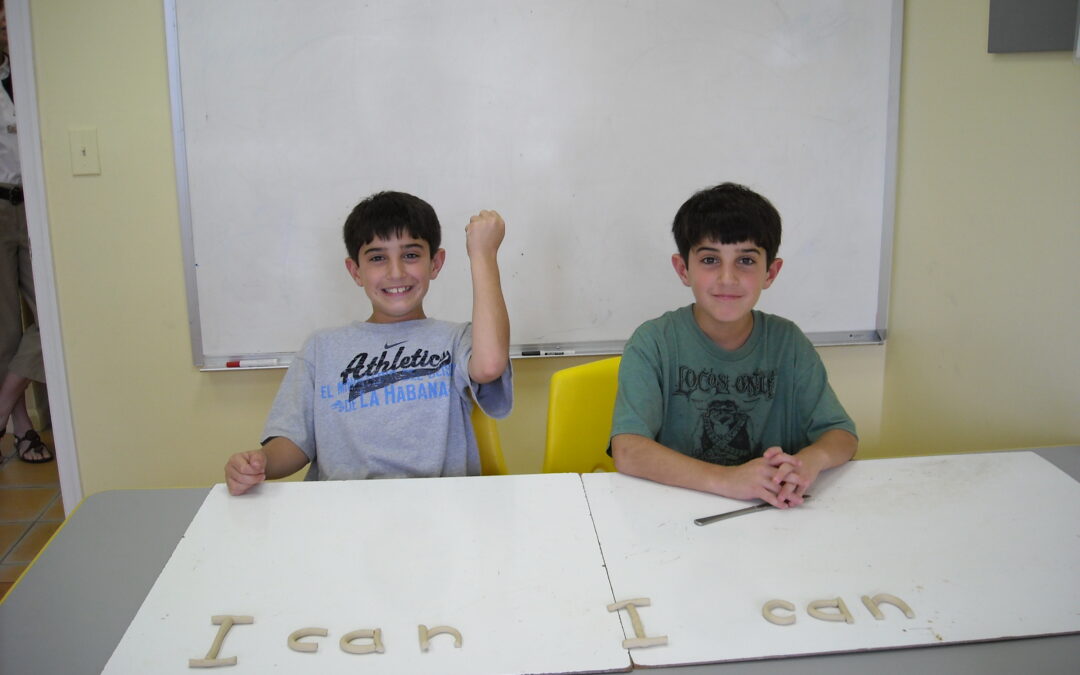
(Often Students Have Been Diagnosed with Dyslexia, ADHD and/or Executive Function Challenges)
3D Learner has helped hundreds of students from 40 different states and 12 foreign countries. These students often were identified with dyslexia, ADHD or executive function issues. Their parents were delighted to find a strength-based program that could teach to their child’s strengths, engage their child and result in significant gains in months.
Within our practice, we call these students a 3D Learner, that is they think in pictures and often in 3 dimensions. From a diagnostic standpoint, one might call them neurodivergent, right brain or kinesthetic learners.
7 Keys to the Success of our 3D Learner Students From Outside Our Area
- Very few programs focus on the strengths of these students. Note, while we might use more common terms like neurodivergent, right brain or kinesthetic learners in describing these kids, when they are here we use the term GOLD Student — Gifted Operating with a Learning Difference. Their gift is they learn differently and can do far better with a hands-on visual approach
- We assess for and address dyslexia, attention and executive function challenges
- We also assess for and address visual processing issues that are often present. These students often have excellent peripheral vision, but their eyes do not converge when reading
- We have 26 years of successes with these students and an excellent team. Note, the 3D Learner Program was developed by Mira Halpert for our daughter. Mira is an experienced educator, a mom who cares and a professional who is committed to helping our students succeed
- The parents really like the concept of an intensive effort that will help their child and them with follow up support.
- We help parents get the help their child needs at school
- The quality of the parents who show up. The students we see are often much smarter than present results would indicate, the parents want their child to succeed and together, we make it happen.
If you suspect this might be your child, we recommend downloading our “Is my child a neurodivergent, right brain or kinesthetic learner screening tool. Then sit down with your child and ask them the questions. Their answers may surprise you.
3D Learner — Intensive Live Training With On-Going Support Via Zoom
Note, initially we did the program in 5 days, with ongoing support. The results were very good.
Then, for clients east of the Mississippi, we started offering three days one week and two days 4 to 6 weeks later, with ongoing support. This resulted in even greater gains.
Now we offer both options, with ongoing support via zoom.
The intensive training with ongoing support works quite well, because:
- Intensive and integrated training works well for these students
- The parents are immersed in the process, too
- Family bonding is fun to watch and very helpful
- The on-gong support maximizes the benefits of the effort
How this works.
Parents often realize they have a child who is a lot smarter than present results would indicate. Parents also recognize that they want a transformational program that:
- Engages their child in the process with a strength-based approach
- Can generate significant results in months
- Addresses dyslexia, attention, visual processing and anxiety challenges
- Helps them to be even more effective coaches and advocates
- Can transform their child into a much more successful student, while improving their confidence, their sports ability and their attitude towards learning and their own talent
Three ways to get started with 3D Learner
Parents give us a call at 561-361-7495 for a no cost conversation on how we might be able to help their child succeed.
- The conversation is often helpful, even if the parents do not become clients. What happens with interested parents is we often hear:
- You really understand my child and me
- I now understand how you can help my child succeed
- If the parents want to move forward, we can do an online assessment and debrief, without their having to leave home
- If the parents want to pursue the program, we find A mutually agreeable time.
Example of our successes:
- A third grader was diagnosed with learning disabilities, ADHD and anxiety challenges. The initial conversation convinced mom we were the right answer. When talking with another mom, she was even more convinced. Her daughter was able to:
- Go from the lowest reading group in third grade to become the best reader in her fourth grade class
- Get homework done in less than half the time
- Flourish as a student and become both more successful and outgoing
They did the program in two parts.
- A 5th grader from Texas had been through a very expensive dyslexia treatment (i.e. $34000 worth) but her comprehension was still at the first grade level. With our help, she was able to:
- Improve her reading comprehension 4 grade levels in 6 months
- Decrease her homework time from 2.5 hours to 1.25 hours, and do it independently, for the first time
- Blossom as a person
They did the program in 1 week.
- More recently, a 7th grader from the State of Washington came to South Florida. With our help, he was able to:
- Improve his reading comprehension 4 grade levels in 6 months
- Become a star student
- Do his work independently.
They did the program in a week, with on-gong support via zoom.
For all our out of area clients, we now recommend blending in person work with on-going support via zoom.
If you would like to discuss how to help your right brain, kinesthetic or neurodivergent
child succeed, give us a call at 561-361-7495
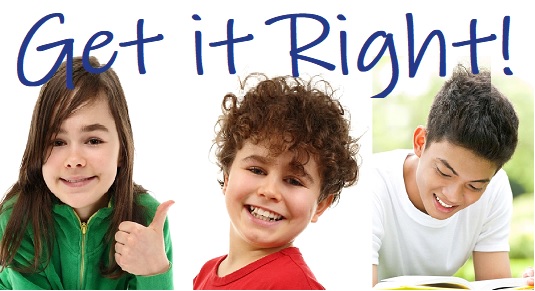
(call us at 561-361-7495 and ask about our assessment special)
(Especially for right brain, kinesthetic and neurodivergent learners)
How to improve reading fluency and reading comprehension is a goal for many students who qualify for the Florida Empowerment Scholarship and the Personalized Education Program.
The term dyslexia has attracted a great deal of information. Many parents invest in a dyslexia treatment. Frequently this will improve a child’s reading fluency (i.e. how fluently a child reads out loud), but reading comprehension challenge persists. At 3D Learner, we focus on how to improve reading fluency and reading comprehension with an integrated, engaging and effective program. We also address executive function, visual processing and anxiety challenges.
3D Learner offers a focused assessment that can be done in person or online, that addresses the following questions:
- Whether your child is a right brain, kinesthetic or neurodivergent learner. For the child who learns differently, it really helps to know that and to find a program that leverages their strengths, identifies and addresses their challenges and helps your child to improve both their reading fluency and reading comprehension.
- Whether your child has dyslexia — and where their reading fluency is strong and where they struggle.
- What your child’s present level of reading comprehension is
- Whether your child has a visual processing challenge — over 74% of the students we see either skip words and/or lines when reading
- How to improve your child’s reading fluency and reading comprehension
To discuss how to improve your child’s reading fluency and reading comprehension call us at 561-361-7495 to discuss your specific situation.
3D Learner — Offering a Strength Based Program to Improve Reading Fluency and Reading Comprehension for over 26 years
Since 1997, 3D Learner has been helping students to improve their reading fluency and reading comprehension. With what has become known as the Florida Empowerment Scholarship for Unique Abilities and the Personalized Education Program for others, we have been able to help more students with Florida’s vastly expanded voucher program.
3D Learner specializes in helping the right brain, kinesthetic or neurodivergent learners who often:
- Remembers details from places visited, even from years ago
- Learns best when they see and experience information
- Are a lot smarter than present results would indicate
- Often have two, three, four of the following challenges:
- They skip words and lines when reading
- They can focus on that which interests them, but lose focus when the work is hard or frustrating
- They have difficulty remembering what they heard or read
- Anxiety and frustration often occur when doing academic work
For voucher students, we are offering a two-hour assessment – tutoring – feedback session when you purchase one hour from 3D Learner through the Florida Empowerment Scholarship or the Personalized Education Program. You can either:
- Purchase an hour and call us at 561-361-7495 or
- Call us at 561-361-7495 to discuss your specific situation.
3D Learner Results for Right Brain, Kinesthetic and Neurodivergent Students
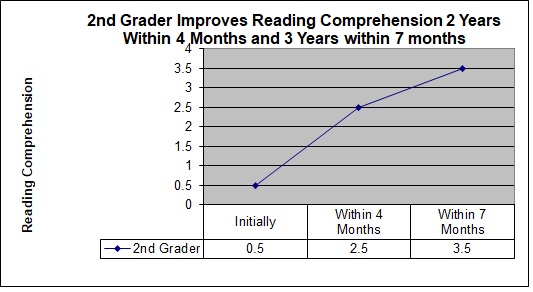
We have helped a second grader to improve her reading comprehension 3 grade levels in 7 months
and a 9th grader to improve her reding comprehension 4 grade levels in 6 months.
A homeschool student had been through 2 years of dyslexia treatments, but her comprehension was still at the kindergarten level, even though she was in 2nd grade.
With our help, she was able to:
- Significantly improve her reading fluency
- Improve her reading comprehension by 2 grade levels in 4 months and by 3 grade levels in 7 months
- Significantly improve her attention, visual processing, and confidence
- Read 23-chapter books on her own, after not having read one previously
- Go from a struggling dancer to the top group, because of their improved neural timing, working memory and confidence
A 9th grader improved her reading comprehension by 4 grade levels in 6 months.
Her mother commented: “Her reading comprehension has increased four grade levels, and she has increased her rate of reading by 100 words per minute. Her ability to comprehend what she is reading has also improved and she doesn’t hate reading for the first time in her life”.
For voucher students, we are offering the assessment – tutoring session with a separate parent consult, if you purchase one hour from 3D Learner through the Florida Empowerment Scholarship or the Personalized Education Program. You can either:
-
Purchase an hour and call us at 561-361-7495 or
-
Call us at 561-361-7495 to discuss how to improve your child’s reading fluency and reading comprehension and more.
For non-voucher students, we are offering this $250 value for $124.
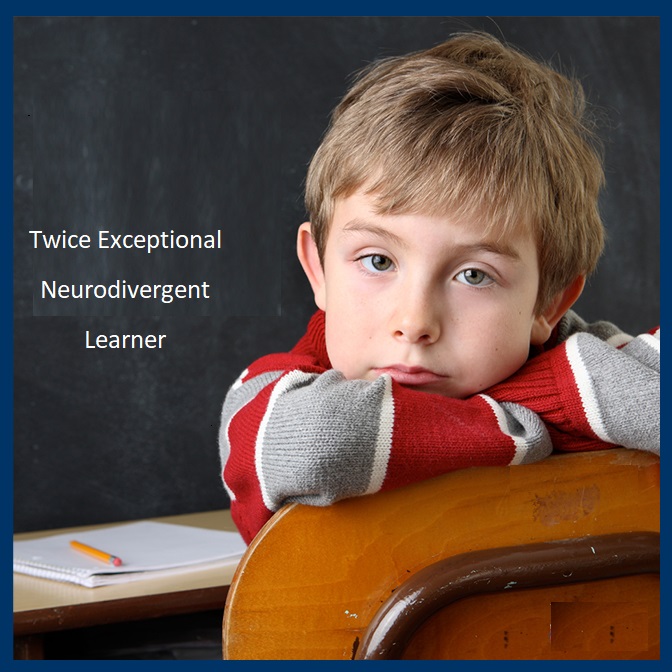
(Call 3D Learner at 561-361-7495 to put your Twice Exceptional Student on Their Pathway to Success)
“Twice exceptional” (2e) students refer to individuals who are both intellectually gifted or talented and may be neurodivergent learners with related challenges. This combination can present unique challenges and strengths in their learning experience. Twice exceptional neurodivergent learners may include those with conditions such as Executive Function issues, dyslexia, ADHD, autism spectrum disorder, or other learning disabilities.
I am Mira Halpert. I have my Master’s in Teaching the Gifted and Talented from the University of Michigan. I also have two twice exceptional children. After years of frustration with dyslexia treatments, learning centers and reading programs, I discovered both my kids were right brain kinesthetic learners. With the 3D Learner Program I developed, my daughter was able to improve her reading comprehension 4.2 grade levels in 7 months, improve her GPA from a 2.7 to a 4.4 and later earn her Master’s in Education from the University of Florida. My son improved his reading scores in elementary school, so that no more school remediation was needed, and he was able to participate in the highly gifted math program.
Over the last 26 years, 3D Learner has helped many twice exceptional students to succeed. Two examples include:
A student whose parents were told not to even apply to a rigorous college prep school, because if he got in he would not succeed. With our help, he was accepted by the school, became the valedictorian and later graduated from MIT.
While another student could solve high level math problems and was incredibly creative, he really struggled with the basics. We were able to improve his foundational skills and his confidence. He was able to succeed in school and is now thriving at the University of Chicago.
5 Things We Have Come to Learn About Twice Exceptional Neurodivergent Learners
1- Most of them are right brain kinesthetic learners, who learn best when they see and experience information
2- Many have significant executive function challenges. Some with working memory and processing speed scores that are far below what their intelligence potential is (these scores often impact their IQ score!).
3- Visual processing issues are quite common. They may have good peripheral vision, but they often skip words and lines when reading and make what appear to be “stupid” mistakes when doing math problems because their eyes do not work together.
4- Their academic performance is often far below their potential. In some cases, dyslexia, dysgraphia or other conditions may have them performing below grade level. In other cases, they may be performing at or above grade level, but they have the potential to do far better than that with the right help.
5- Schools or traditional programs often do not result in significant gains. The twice exceptional neurodivergent learner can benefit most from a program that plays to their strengths, identifies and addresses their challenges and boosts their self-esteem,
As the mom of the student who went to MIT said, “You changed his attitude and that was 90 percent of the battle”.
How 3D Learner Can Help Put Your Twice Exceptional Child on Their Pathway to Success
As parents, we wish we had access to both the right assessment and help for our daughter earlier in her life. To help parents, we are offering three ways to learn more:
1- Sign up for our Parents, Put Your Twice Exceptional Child on Their Pathway from Stress to Outrageous Success Webinar this Thursday evening January 11th at 9 pm.
Sign up and if you cannot make it, we will send you a replay.
2- Download our strengths and challenges infographic and get our series of posts on Getting It Right for Your Twice Exceptional Child.
3- Call us at 561-361-7495 and we can discuss how you can make the difference. If you want, we can also share how we Assess The Twice Exceptional Neurodivergent Child and how we help the Twice Exceptional Neurodivergent Child to Succeed with our 3D Learner Program ®.



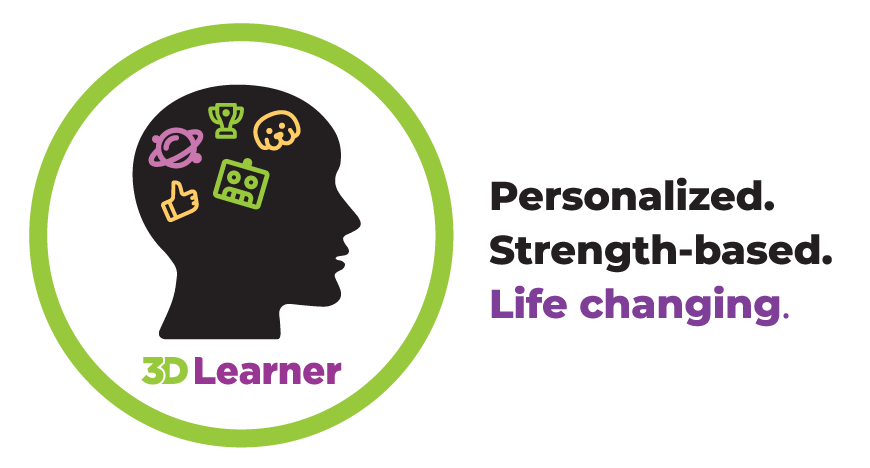
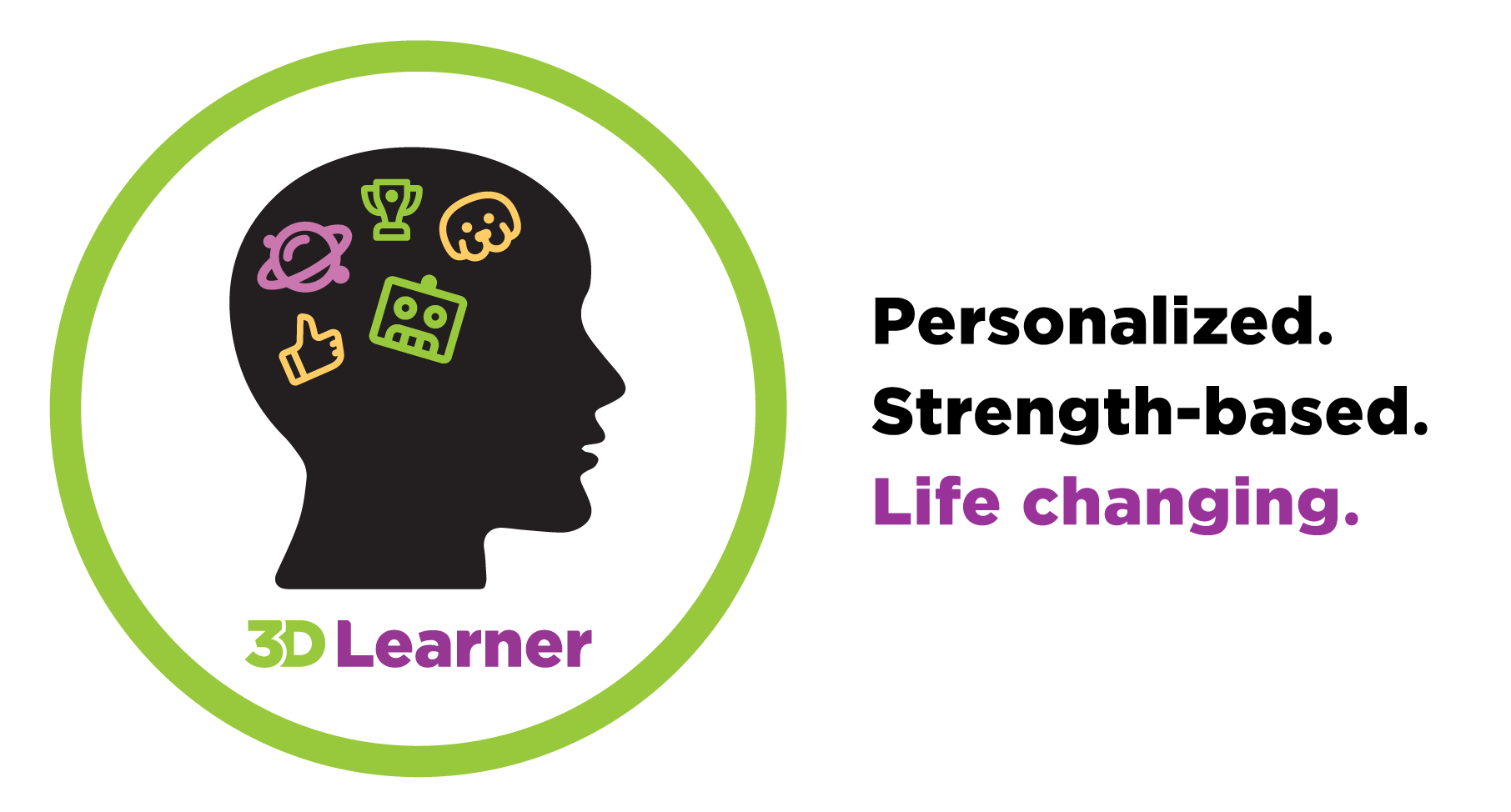






Recent Comments